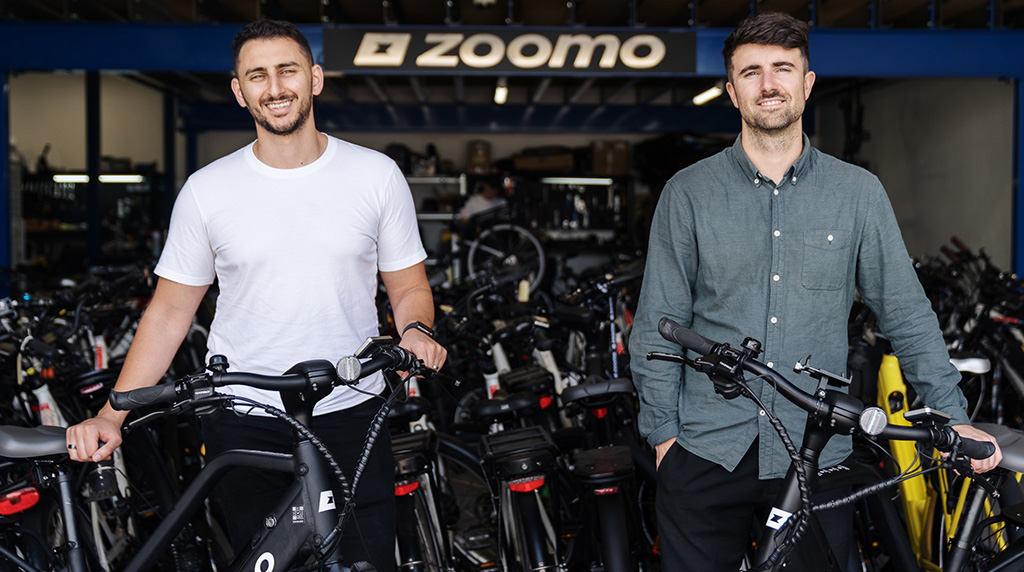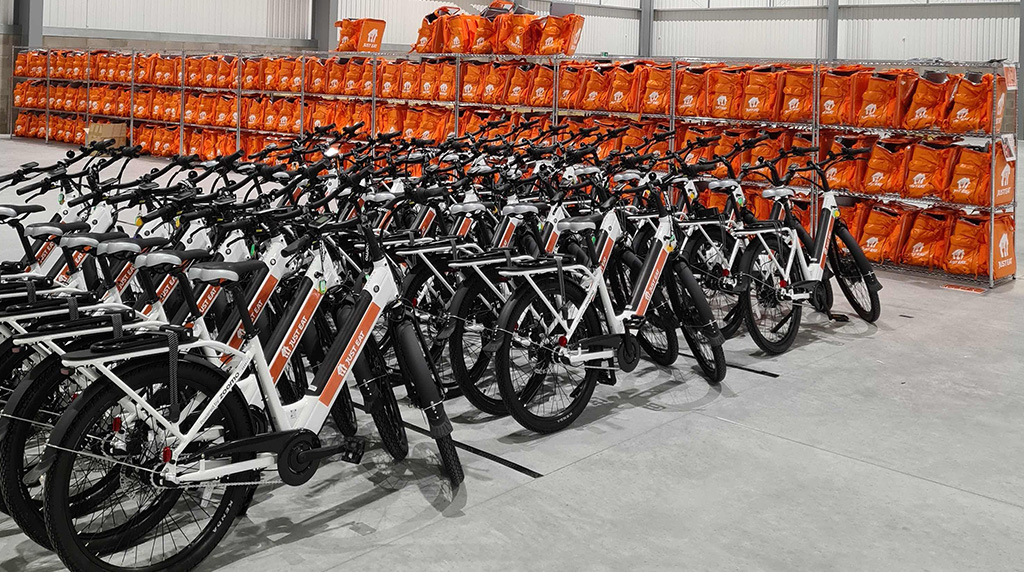The investment puts SG Fleet as a partner in the booming micro mobility industry and connects directly with existing and potential customers needing short distance, single person commercial transport options. Micro mobility includes e-bikes and e-scooters.
It coincides with a study in the US by Oliver Wyman and the Institute of Transportation Studies (ITS) at the University of California-Berkeley that predicts new global mobility services will be valued at $US660 million ($A980b) by 2030 and that, within that forecast, micro mobility will be valued at $US28 billion ($A42b), up from $US9 billion ($A13.4b) in 2020.
SG Fleet said of its investment in Zoomo that it sees this space as a core feature of its MaaS (Mobility-as-a-Service) Roadmap and therefore made a small investment in the Australian-born but now multinational start-up, Zoomo, which provides a fully vertically integrated e-bike and e-cargo services.
The company told GoAutoNews Premium: “Zoomo’s e-bikes are a suitable transport option for a number of customers in various industries, and not just in courier and delivery.”
There also is a significant retail market for Zoomo’s bikes and the company will explore this potential via its novated channels here and in the UK.
The investment is in line with SG Fleet’s strategy to back know-how and expertise in areas that help it build a comprehensive and multi-modal MaaS solution.
SG Fleet told GoAutoNews Premium that the company’s broader vision for customers was to “manage the full journey” by offering multiple modes of transport.
SG Fleet this week announced that since its investment in Zoomo in February it had taken the micro mobility concept to customers and was now offering the e-bike options.
The company said it looks at the total journey rather than just a single vehicle to identify the most efficient way to complete the journey, which would be a combination of cost efficiency, environmentally efficiency and safety.
SG Fleet said e-bikes could be a more sustainable and efficient solution for short journeys and small deliveries.
It said that there was a point where a van no longer becomes efficient when it is carrying a small load over short distances and it could be more efficient to put that delivery on the back of a bike.
It said that micro mobility will give its customers access to an extra solution that can be integrated into the company’s existing offering.
Examples of this include delivery businesses where in addition to a fleet of vans, in some instances it would be more efficient to have e-bikes available for the delivery.
SG Fleet said it would be able to offer a more efficient bundled van and e-bike solution. This will allow the customer to deal with one fleet manager rather than with a fleet manager for each transport mode.
SG Fleet’s stake in Zoomo will allow it to better understand micro mobility while Zoomo has the benefit of looking at how SG Fleet manages its fleet vehicles.
The agreement announced this week will allow SG Fleet to introduce the product to its corporate and government customers as well as through its novated leasing channels.
The Oliver Wyman global study found that alternative mobility services, from ride-sharing to e-scooters, will grow twice as fast as traditional public transit annually through 2030.
The study analysed 13 mobility-related services in North America, Europe and Asia and forecast that the global market for new services would hit $US660 billion ($A980b) in 2030, up from $US260 billion ($A386b) in 2020.
It estimated that the total mobility services industry would grow at almost 10 per cent a year on average, compared with five per cent for the overall transportation sector.
“Some of the strongest growth, averaging 23 per cent a year, will come from ‘semi‑mature and emerging services’ — electric vehicle charging, bike and scooter sharing, carpooling services, and smart parking payment technology,” the study said.
The three factors driving the growth in new mobility services are:
Technology: Integrated mobile apps ease navigation and longer-range batteries make e-scooters and e-bikes more viable.
Regulation: Cities are using a combination of taxes, subsidies, and infrastructure spending to influence the public’s transportation choices.
Consumer demand: People want cheap, on-demand individual mobility, which explains the growth in shared bikes and cars over traditional mass transit.
By Neil Dowling















 Read More: Related articles
Read More: Related articles

